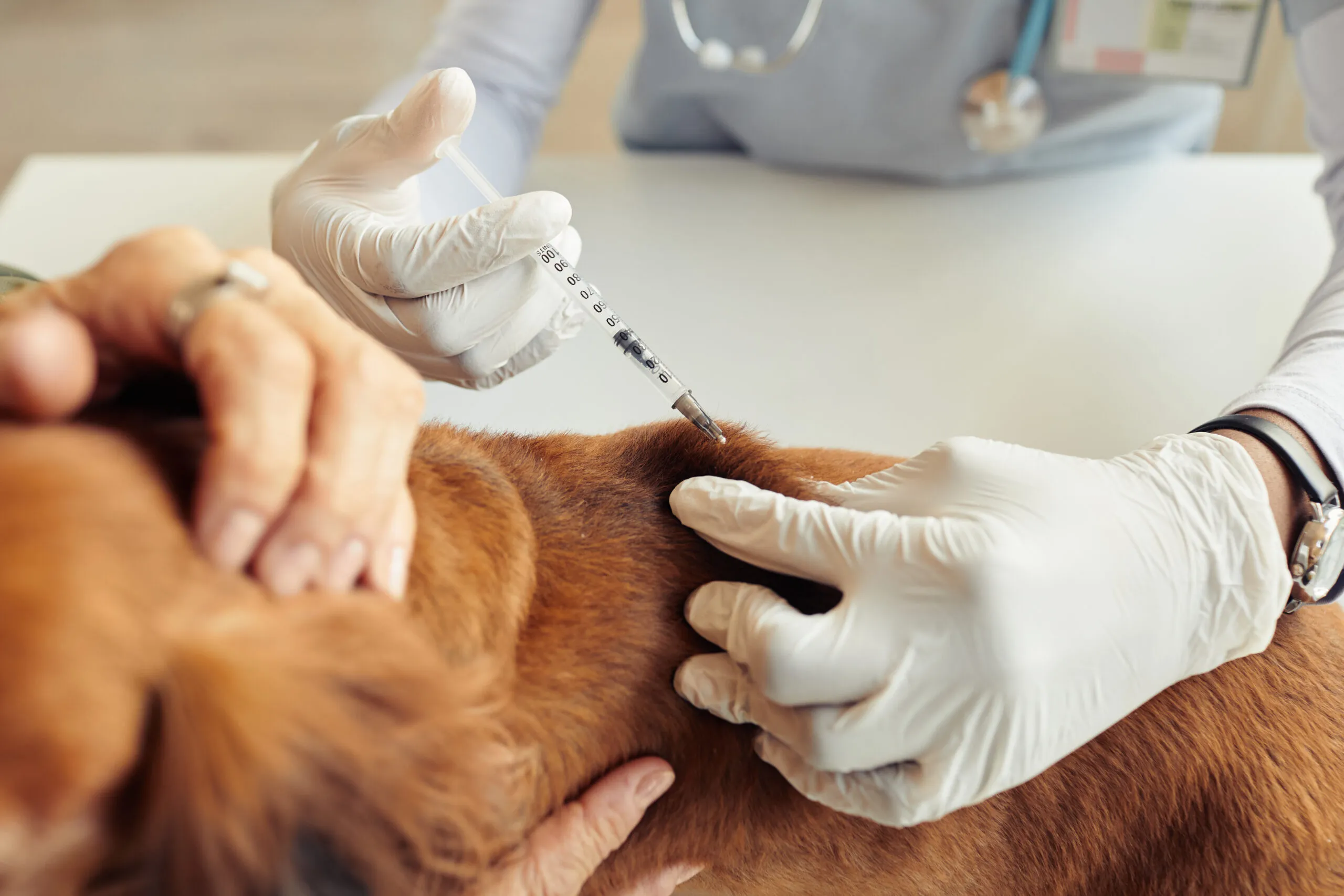Reviewed by Dr. Sarah Yosry
Updated on 1/16/2025
Reading time 1 min.
Overview
Severity: Medium
Life stage: All
Dogs often make for energetic pets, going on daily walks, frolicking in the garden and chasing after butterflies, and playing fetch at the park. While spending time outdoors is a good way to exercise your dog to ensure their continued health and wellbeing, it can also potentially expose them to disease-causing germs and possibly, other infected dogs.
Vaccination in dogs
The most effective way to protect your dog from diseases caused by infectious viruses and bacteria is by getting them vaccinated.
While vaccines don’t offer a 100% immunity against diseases, they are still an effective way of protecting your furry family from various illnesses and infections.
Types of vaccines for dogs
When it comes to vaccinating your dog, there are two types of vaccines that come into play — core vaccines and non-core vaccines. Core vaccines, comprising inoculations for canine distemper virus, canine parvovirus, canine adenovirus-2 (hepatitis), and rabies virus, are recommended for all puppies and dogs. Non-core vaccines, on the other hand, are recommended in certain situations and depend on the probability of risk of exposure. They include vaccines against Leptospira, Lyme disease, kennel cough, canine parainfluenza virus, and canine influenza.

There are vaccines available for several diseases including rabies, distemper, parvovirus, leptospirosis, adenovirus, parainfluenza, coronavirus (not COVID-19), Lyme disease, Bordetella bronchiseptica, and canine influenza. The vaccines for these diseases can also be taken in combinations as a single shot, which makes it all the more convenient for you and your pet.
Conclusion
Certain vaccines are administered depending on your pet’s age, medical history, lifestyle, travel habits, and their environment. Your veterinarian can advise you on the vaccines and practices required to keep your pet safe from the various infections and illnesses.
Share this, choose your platform!
Writen by
Dr. Sarah Yosry
DVM
A product of a rich Australian/Egyptian heritage, Dr. Sarah Yosry stands as a testament to the union of diverse cultures and a shared love for animals….


